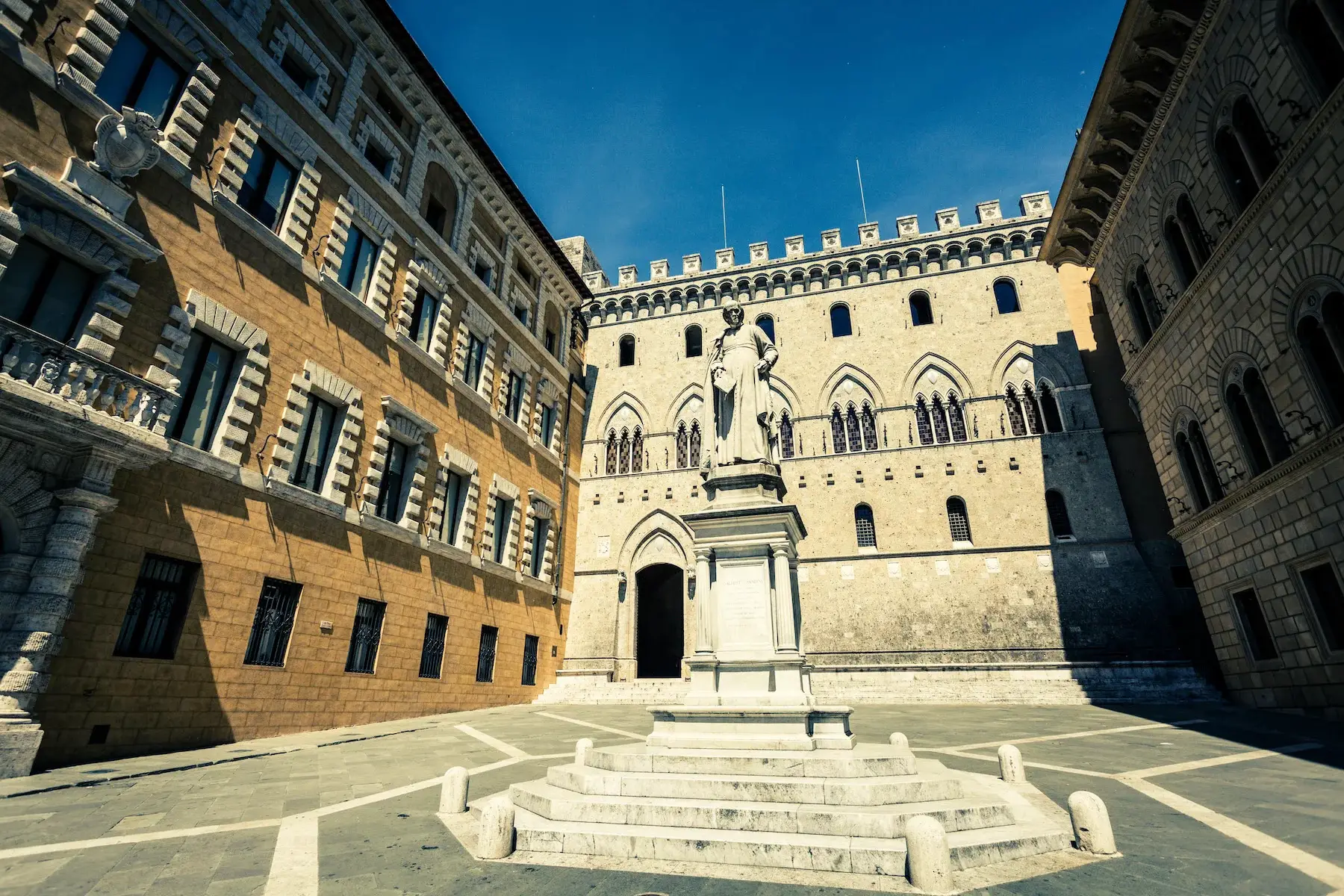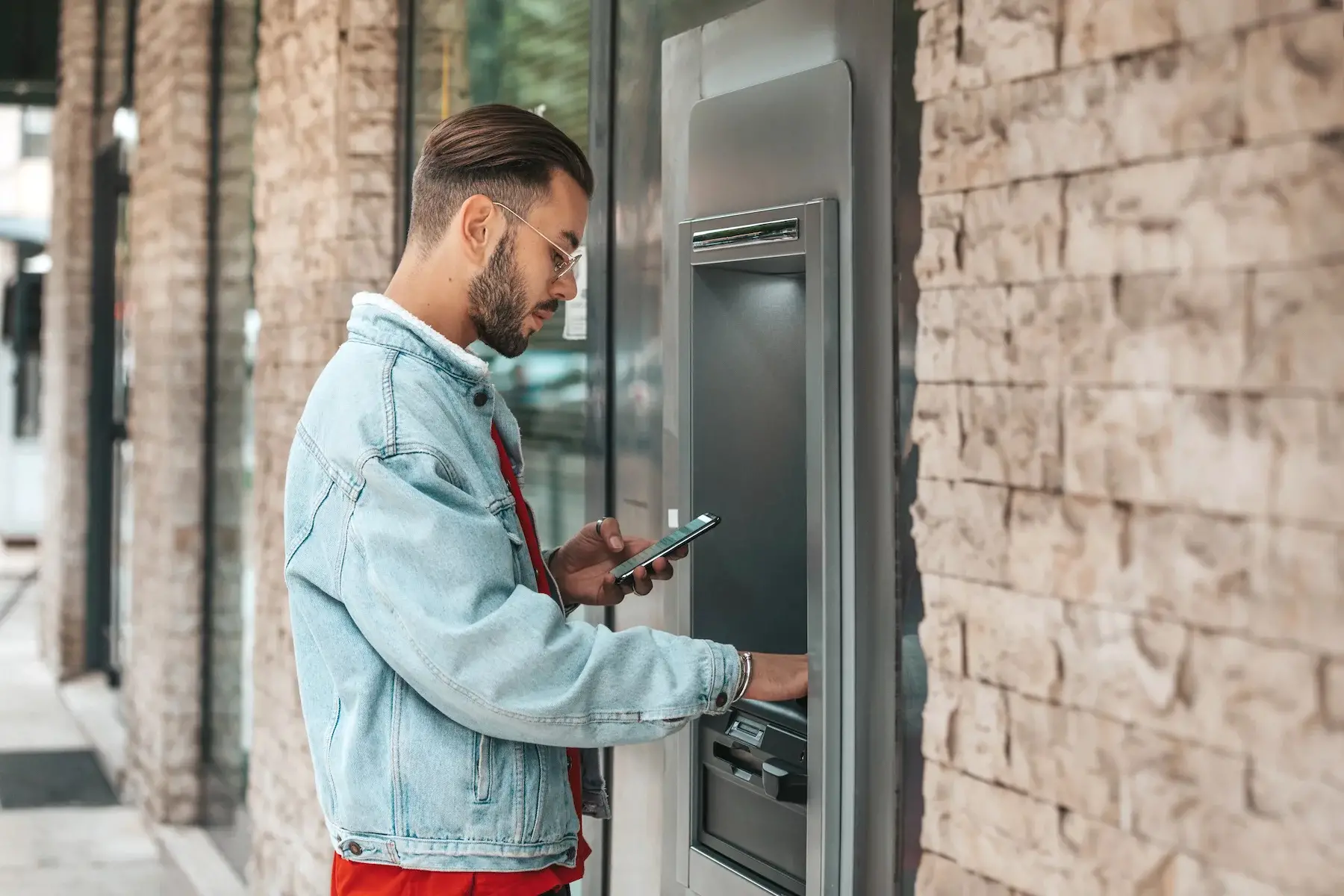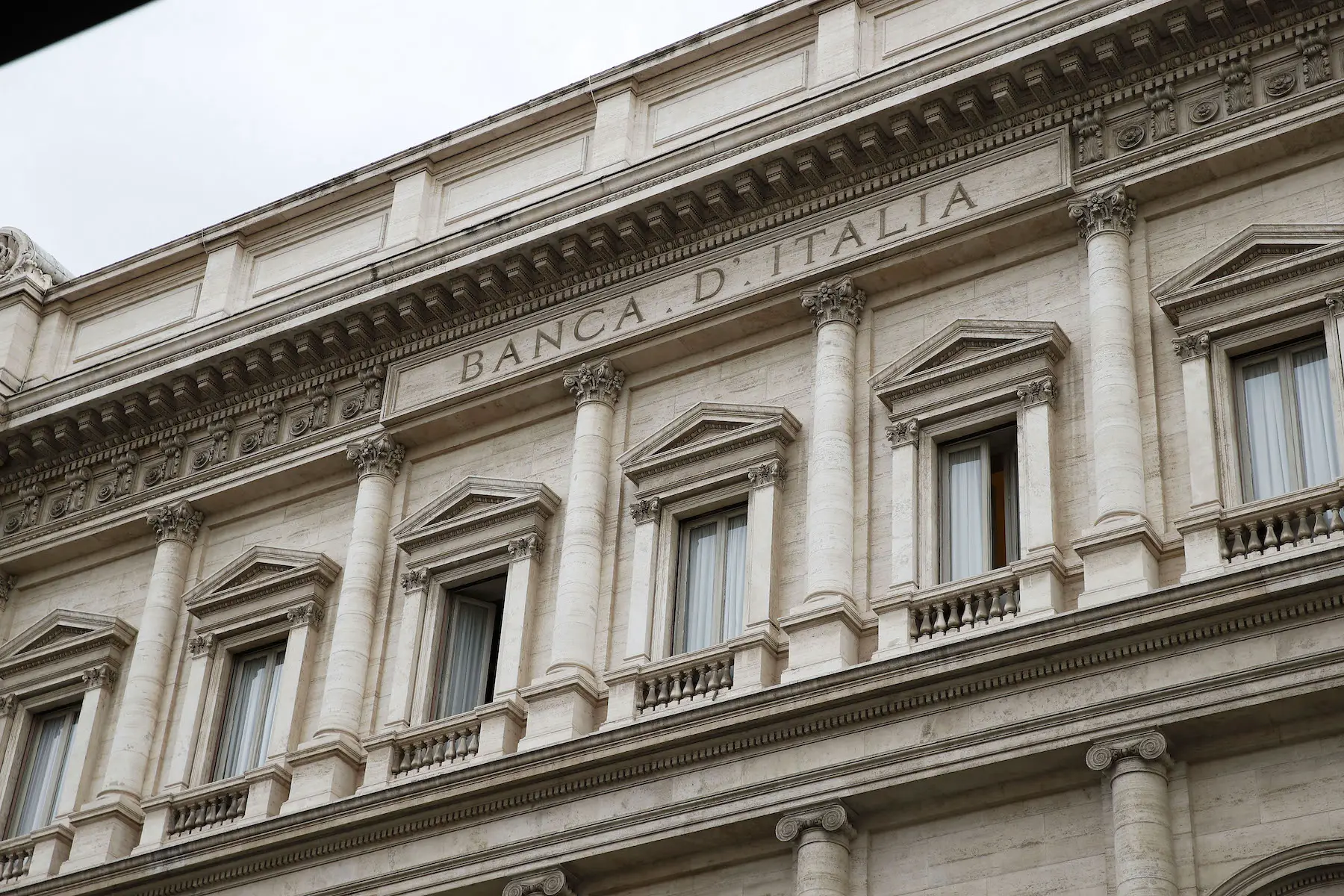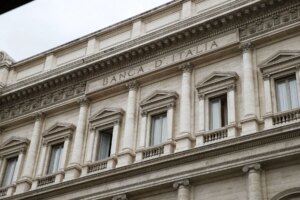For day-to-day money management, internationals in Italy can choose between opening an account with an Italian bank, one of the big international providers, or a digital-only service such as a mobile bank.
Whatever you choose, this article can help you find the best bank for your lifestyle and needs by exploring the following topics:
- Banking in Italy
- Do you need a bank account in Italy?
- Before you open a bank account
- Types of Italian bank accounts
- How to open an Italian bank account as an expat
- Opening a corporate account in Italy
- How to open an Italian bank account for your children
- Opening a bank account with a low credit score
- What to do if you are refused an Italian bank account
- Choosing an Italian bank account
- Banking services in Italy
- Managing your bank account in Italy
- Changing banks or closing an Italian bank account
- Useful resources
N26
N26 is the bank you'll love to use: open your bank account in just eight minutes with no paperwork. Take control of your finances with one app where you can manage limits, set your PIN, lock/unlock cards, and make no-fee transactions anywhere in the world.
Banking in Italy
Italian banking can be traced back to the Renaissance period. The oldest surviving bank in the world is the Banca Monte dei Peschi di Siena founded in 1472. The banking system in Italy consists of the national central bank – the Banca d’Italia – and several national, international, regional, and digital entities. These providers work in commercial retail banking or savings, investment, and wealth management services.

Opening an Italian bank account as a foreigner is fairly straightforward. Some of the leading providers offer expat-friendly services or non-resident accounts. Multinational and digital banks also have account options tailored to residents from other countries.
Multinationals include:
- BNP Paribas
- Crédit Agricole
- HSBC
- ING
Do you need a bank account in Italy?
There is no legal requirement to have a local, Italy-based bank account just because you live in the country. You can choose an online or mobile bank, like Wise, that allows you to manage your money anywhere in the world.
However, if you stick with an overseas account, you may find it difficult to manage daily finances. It can also be complicated to pay utility bills or take out insurance if you don’t have an account based in Italy, especially if you are from outside the Eurozone.
Before you open a bank account
In most cases, you must wait until you move to Italy to open a bank account in the country. Banks usually require you to present documentation in person, such as your Italian tax number and proof of residence. Services such as Moving2Italy can guide you through these processes.
Moving2Italy
When relocating to Italy, get expert help from Moving2Italy on taxes, work permits, and setting up a business. They also provide personalized support for immigration, social security, and residence, helping you navigate your new life abroad. For assistance with fiscal and immigration matters, contact Moving2Italy.
However, some banks offer non-resident options, so you might be able to set up a current account and then update your personal details after you’ve relocated.
It should still be easy to use your overseas account when you arrive in Italy before sorting out your Italian banking. Most ATMs take foreign cards and you can pay with Visa, Mastercard, and American Express in many shops and restaurants. However, you may incur bank charges, especially if it’s based outside the Eurozone.
Types of Italian bank accounts
Current account (conto corrente)
The most common type of bank account in Italy is called a current account. With this, you can send and receive money, set up bill payments, obtain debit and credit cards, and access overdraft or loan services. While current accounts are usually free, they might come with restrictions like limited credit card or loan options. Banks also offer account upgrade options – for example, premium or gold status –usually with a fixed monthly or annual fee.
Specialized current accounts you can find in Italy include:
- Joint account (conto corrente cointestato)
- Non-resident account (conto non-residenti)
- Student account (conto studente)
Keep in mind that some non-resident accounts are restricted to European Union (EU) and European Free Trade Association (EFTA – Iceland, Liechtenstein, Norway, and Switzerland) nationals.
Savings account (conto di resparmio)
You can open a savings account with most retail banks and specialist providers. Easy access accounts let you withdraw money at any time without penalty. Deposit accounts come with a minimum notice period required before withdrawal.
How to open an Italian bank account as an expat
You need to visit a branch in person to open a new account with most traditional Italian banks. This is because they require physical copies of documents.

Expect to bring the following documentation to open an account:
- Photo ID (e.g., a passport or driver’s license)
- Italian tax number (codice fiscale) or acceptable equivalent for non-residents
- Proof of address
- Valid residence permit
- Proof of employment or salary, like a copy of your work contract
Once approved, your account will be open and ready to use. Debit cards and credit cards usually arrive by mail in a few days.
Mobile banking
Mobile banking is fast, convenient, and allows you to manage your funds anywhere in the world. Online and mobile-only options, like Revolut, are even more popular among internationals as they offer cross-border services and can be opened remotely.
Unlike traditional banks, you can open a mobile account in minutes via smartphone. You can also send any required identification documents digitally. They usually only need a home address, email address, and phone number. Some of the mobile banks that operate in Italy are:
Opening a corporate account in Italy
If you start a business in Italy, you will need to have a business bank account. Sole traders and freelancers can also benefit from this type of account if it streamlines their business operations. Most major banks offer products specifically for companies, including bank accounts, loan and investment products, business insurance, and growth products.

To open a business bank account in Italy, at least one of the directors should visit a branch in person. They will need to provide:
- Photo ID
- Tax number
- Proof of address
- Company certificate of registration
- Most recent accounts or financial records
Italian business bank account fees range from €15–50 a month. You will be charged for the same services as a personal account – for example, credit card fees, loan fees, and international money transfer fees – but the price may be higher.
How to open an Italian bank account for your children
You have to be at least 18 years old to open a bank account, but parents and guardians can open one on behalf of their child. Once your child reaches the age of 18, they will be able to take control of their account or transfer it into an adult account. Banks offer different products for young people, including savings accounts and basic current accounts for teens and children. Basic accounts for minors in Italy are usually free of cost.
To open an account for your child in Italy, you need to visit the bank on the child’s behalf. If you can provide digital copies of the necessary documentation, you may be able to open it online. On top of the usual documents required for an adult bank account, you will also need to provide your child’s ID.
Opening a bank account with a low credit score
With a low credit score, you may be restricted to a basic account (conto base) with most Italian banks. This is like a current account with limited services, which is either free or about €3–4 a month. Banks tend to waive fees if your annual income is below a certain threshold.
With a basic account, you can manage money, use a debit card, and make money transfers in the Single Euro Payments Area (SEPA). However, access to more complex products like loans and overdrafts may be restricted.
The following Italian banks offer basic accounts:
- UniCredit
- Intesa Sanpaolo
- Banca Nazionale Lavoro
What to do if you are refused an Italian bank account
Your bank account application can be rejected if you fail a credit check or lack sufficient documentation. However, the provider should let you know if you qualify for an alternative product instead. For example, you may still qualify for a basic account, if you fail a credit check for a standard current account.
Remember that Italian banks are legally obliged to offer some sort of account to EU/EFTA citizens.
If you feel you have been unfairly refused, you can contact the bank’s complaints department. Each bank should have its own complaints procedure detailed on its website. If you are not happy with the outcome, you can escalate the complaint to either the Banca d’Italia, the Banking and Financial Ombudsman (Arbitro Bancario Finanziario), or the Banking and Financial Conciliator (Conciliatore Bancario Finanziario).
If you cannot open a bank account in Italy, you can manage your finances from an overseas account through cross-border banking.
Choosing an Italian bank account
When looking for an Italian bank account, do your research to find what is available and best serves your needs. Things to consider include:
| Consideration | Details |
| Cost | While account fees may vary, most Italian banks provide free basic accounts or at low cost |
| Product range | This may include credit cards, investment opportunities, money transfers, loans, and more |
| English-speaking services | Staff at international and major national banks are more likely to speak English |
| Additional features | Extra benefits such as budgeting tools or mobile payment options may be available |
| Customer reputation | You can check online reviews for each bank to see how satisfied its customers are |
| Ease of access | If you want 24/7 access to your funds, you’ll probably need online or mobile banking options |
| Ethics | Check websites like CSRHub and Corporate Knights to see how companies perform in ethics and sustainability |
Banking services in Italy
Banks in Italy provide the same services as other western and European countries. This includes some combination of the following:
- A variety of account types (e.g., checking, savings)
- Loans
- Overdrafts
- Credit cards
- Investment products
- Insurance
- Pensions
- Mortgages
International money transfers
International money transfers are an easy way to send funds abroad. When considering the best option for your situation, it’s good to know the alternatives to a traditional bank, such as
Managing your bank account in Italy
You can choose how to manage your account with most Italian banks. The different ways include:
| Method | Description |
| Face-to-face | Italy has nearly 24,000 bank branches that provide in-person customer service |
| Phone | Most banks offer assistance by phone during business hours and some include video appointments via platforms like Zoom |
| Online | The major banks in Italy offer online banking to keep an eye on funds and make payments 24/7 via a password-protected account |
| Mobile app | Most banks have mobile apps so you can manage your finances on any smart device |
Changing banks or closing an Italian bank account
To change banks or close an account, you should first contact your current provider and give them all the necessary details. Banks usually have a form you need to fill out, often found on their website.

You have the right to switch to another account or provider at any time. In Italy, banks are legally obligated to complete the transfer within 12 working days, as long as two requirements are met:
- You have a positive balance
- You are switching to a bank that uses the same currency
Although you can switch services while in debt – for example, due to credit cards or loans – you will not be able to close an overdrawn account. Italian banks should complete the transfer for free unless you incur a penalty charge in certain circumstances. These should be detailed in the account’s terms and conditions.
Useful resources
- Banca d’Italia – the central bank of Italy and main supervisory and regulatory body
- Banking and Financial Ombudsman (Arbitro Bancario Finanziario) – independent dispute resolution service
- CSRHub (Corporate Social Responsibility Hub) – aggregator and provider of social ethics reports on corporations, including banks






